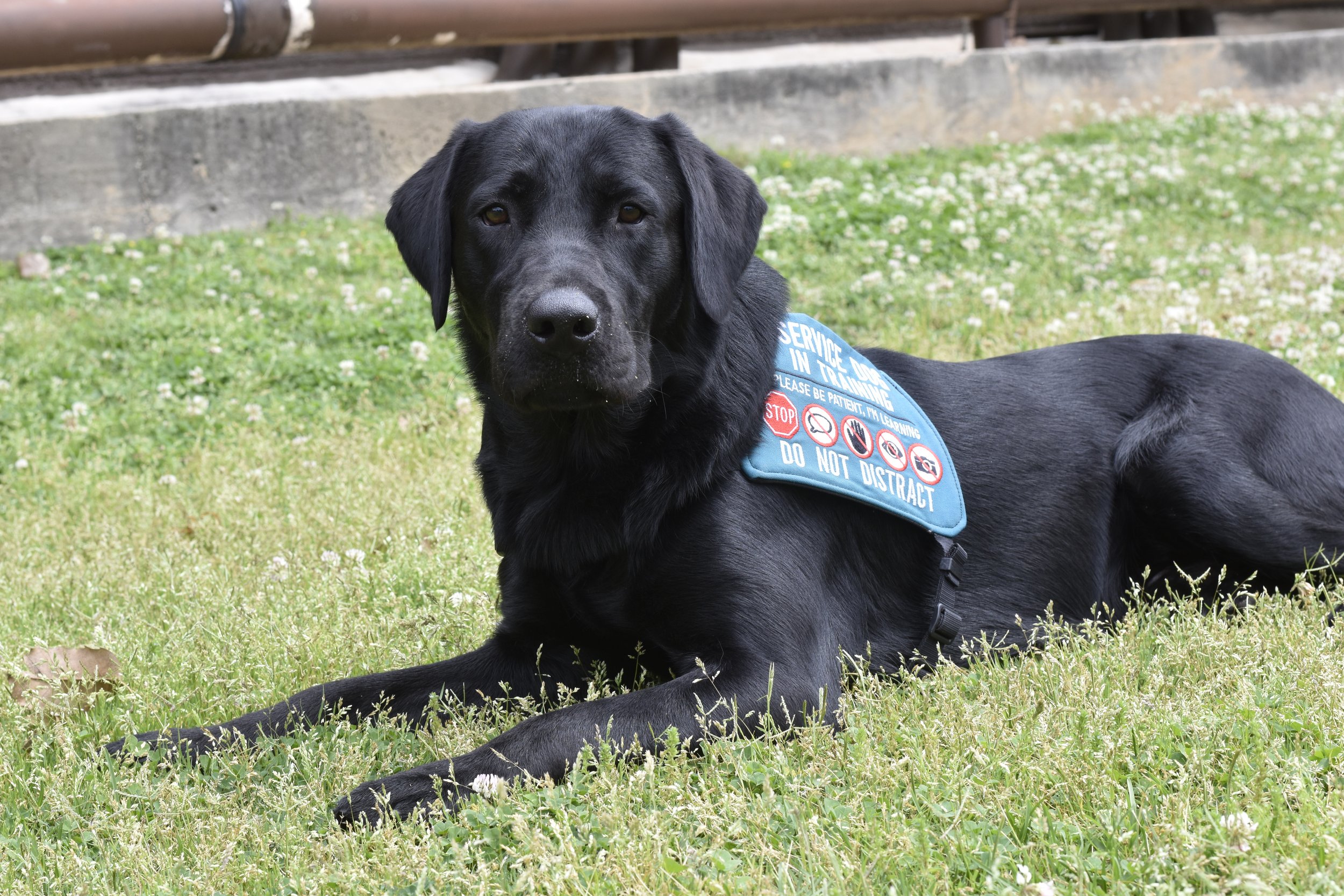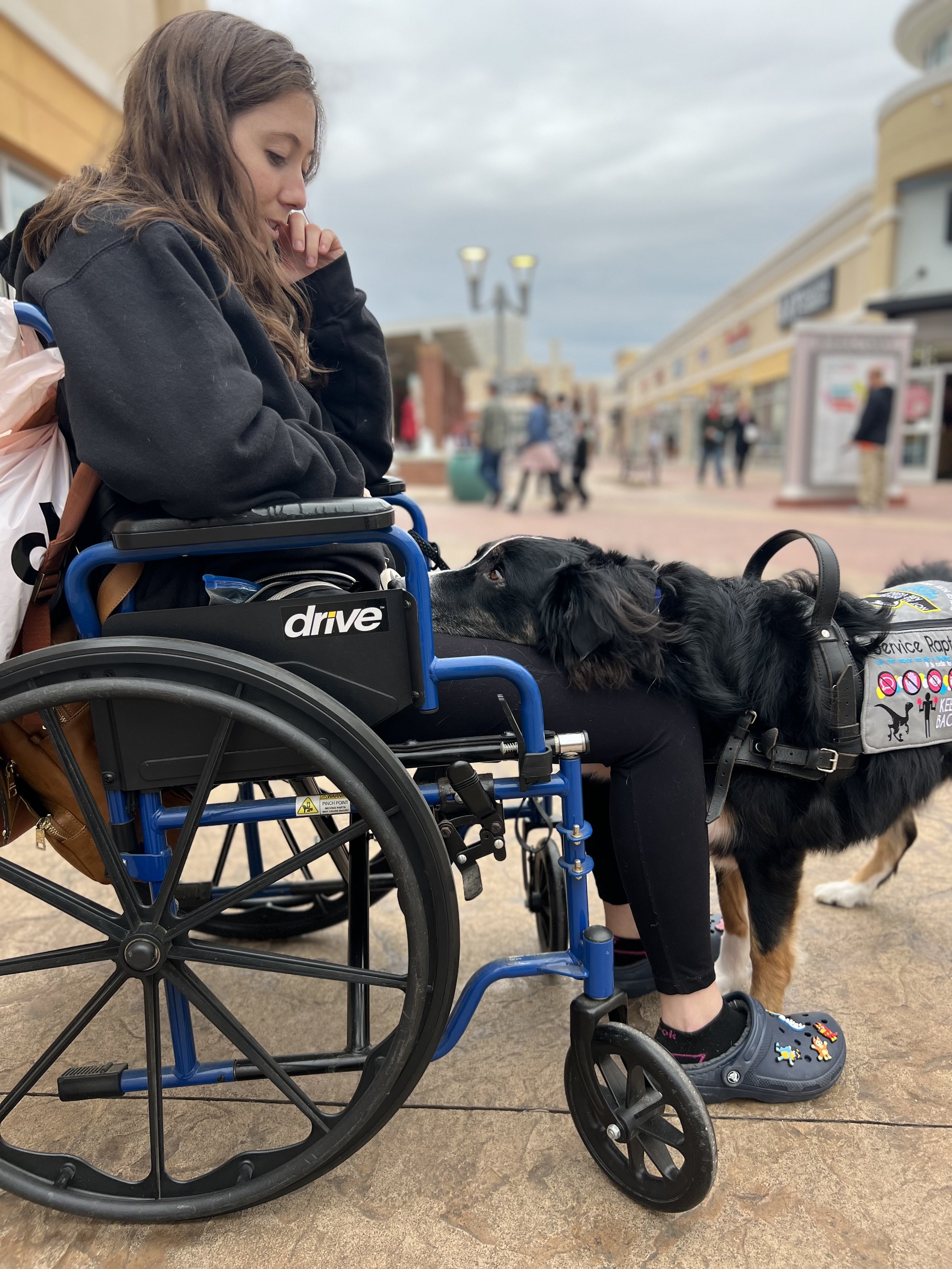
Helping You Gain Independence,
Service dogs are highly trained animals that play a crucial role in enhancing the quality of life for individuals with disabilities.
Total Focus Canine offers programs to aid individuals seeking independence by providing fully trained program dogs or giving handlers crucial information to train their own prospects.
Training can span up to two years. We provide the option of Online or In-Person training sessions to cater to diverse needs. We recommend at least one board and train session during the 2-year training period to ensure our trainer is able to provide in-person, hands-on training in order to teach difficult tasks and to verify the dog is progressing correctly.
Our Field Of Focus
Medical Alert
Some dogs can be trained to provide a warning before a medical episode happens. The dog is specifically trained to pick up the scent before an episode occurs. This allows the handler to take emergency medication, or allow the dog to respond with different tactiles to prevent the episode.
Some of the conditions that could have an alert:
Postural Orthostatic Tachycardia Syndrome (POTS)
Diabetes (Alerting to Highs/Lows)
Epilepsy
Migraines
Narcolepsy
Psychiatric
Psychiatric service dogs are designed for people who have special psychiatric conditions that debilitate their daily lives.
Psychiatric Service Dogs can assist individuals with a range of mental health conditions, including but not limited to:
Anxiety Disorders
Mood Disorders
Post-Traumatic Stress Disorder (PTSD)
Obsessive-Compulsive Disorder (OCD)
Autism Spectrum Disorder (ASD)
Attention Deficit Hyperactivity Disorder (ADHD)
Dissociative Disorders
Some ways they can help:
Bring Medication
Provide Tactile Stimulation (Licking, Pressure Therapy)
Interupt and Redirectt
Block others
Dogs can be specifically trained to respond before, during, or after a medical episode occurs. Some ways they can help:
Pressure Therapy. Stimulates blood flow, provides pressure and warmth to relieve arthritic pain, reduces spasms, relaxes the nervous system, and more.
Elevate legs by laying under them.
Laying Across the Chest of a Seizing Handler to Help Reduce Duration of Seizure
Laying next to the handler in an attempt to prevent injuries.
Medication and or Item Retrieval
Retrieving Glucose Kit From Fridge
And More.
Medical Response
Hearing Alert
Hearing Alert Dogs are trained to assist their deaf and hard-of-hearing partners. When the dog hears a particular cue, they alert their owner and lead them towards the noise.
These cues include smoke or fire alarms, doorbells, door knocking, phones, alarm clocks, and even the person’s name.
Mobility Assitance
Mobility Support Dogs assist people who are unable to move, balance, walk, and/or regain stability by themselves. People requiring mobility tasks may or may not be ambulatory. We do not believe in training a dog to brace a handler to stand. This can create future joint pain and medical concerns for the dog.
Examples of Tasks Trained for Mobility:
Turning off/on lights
Opening Doors with Handicap Push Button
Closing/Opening Doors in Home.
Item Retrieval. (Dropped items included.)
Taking off Socks.
Laundry (retrieval from washer/dryer)
Counterbalance
Light Guidework
Forward Momentum Pull
Wheelchair Pulling
And more.
Allergy Detection
These Service Dogs can smell even the slightest traces of potential allergens. These can be masked within food.
Our dogs are specifically trained for an intolerance to Gluten.
Feel free to send us an Inquiry if you do not see the type of aid you are needing.



